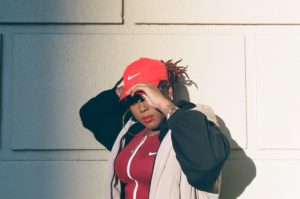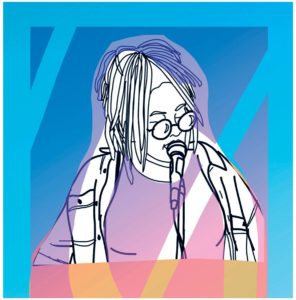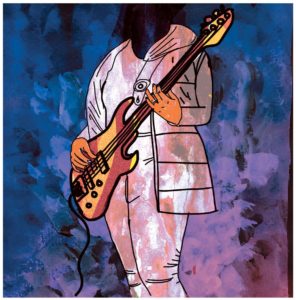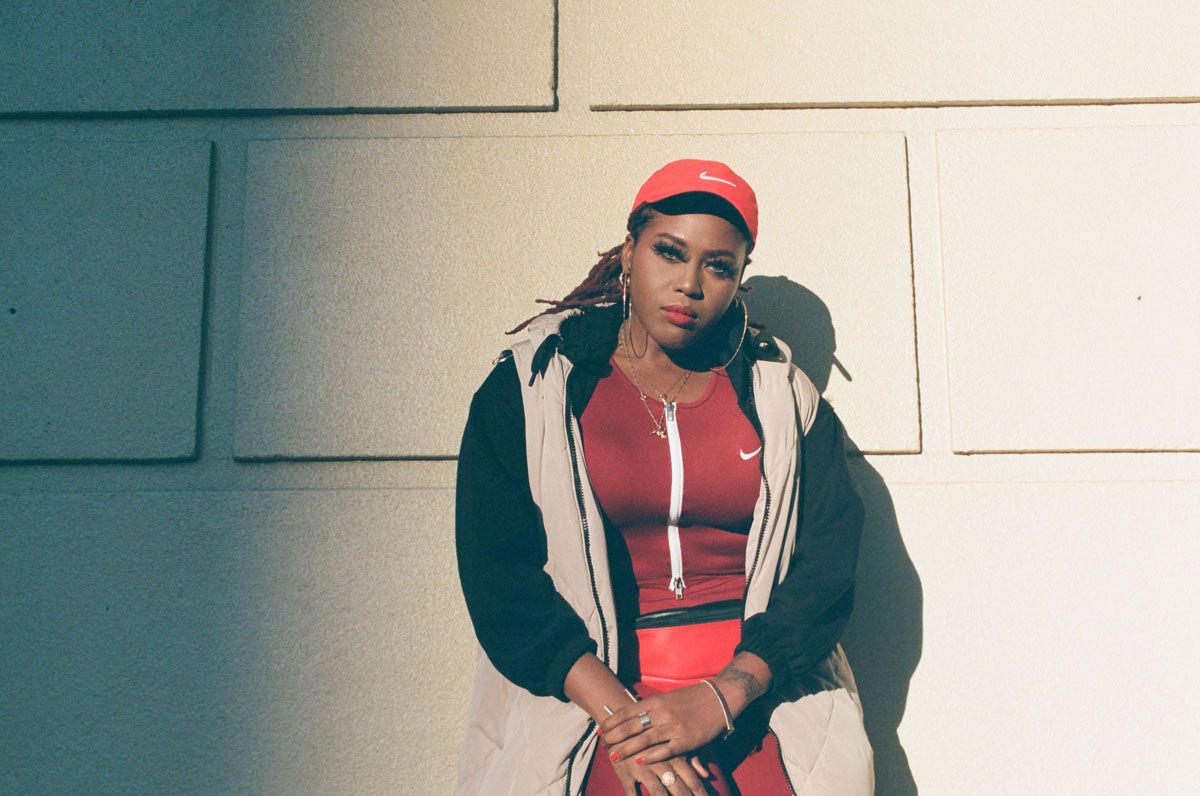Dae Shields aka ebonEmpress is a Vancouver based emcee, rapper, bassist, spoken word artist, designer, activist, and community advocate (to name a few of her talents.) She is also one of the founders of AfroVan Connect, a non-profit dedicated to empowering people of African Descent through conversation, collaboration, creation and performance. Dae’s work explores so many of genres and mediums, but at its core it all ties back to healing. Healing communities, healing spaces, healing individuals and healing souls. I had the pleasure of speaking to Dae about music, community, activism, the nature of space, and much, much more.
Fabio: The work that you and AfroVan have been doing is super inspiring! What was your drive behind starting the organization?
Dae: AfroVan has been such a journey. It’s been really powerful and has changed me in so many ways. When I started out, I wasn’t thinking, “Oh we’re gonna create this group and it’s going to be called AfroVan.” I wanted to pursue my career as an artist and musician, and I was looking for a platform. As I went around Vancouver I just couldn’t find it. I went to shows and events, but I could never find my community. I played a show at this place called The Pace. They had a big warehouse, which has shut down now, like many of our cultural spaces. After the show I talked to the owner and told her that I had been looking for a space — a place where my community could connect, jam, talk or whatever. She gave us a key and the key-code and said “come in whenever you want.” Because she opened her doors to us, we were able to start the beginnings of what is now AfroVan.
What was it like to see AfroVan grow?
It started with a lot of collaborations. People saw the work we were doing — we were connected with the Nora Hendrix House, and the Hogan’s Alley Society — and we started reaching out to other people creating community. I think a big part of the beginning of AfroVan is the listening – what do people want? What are they lacking? Where are the gaps? We knew what our gap was, our gap was space. So we knew that there had to be other people feeling the same way, while at the same time there are other gaps. As we explored that with the group’s original participants it slowly started to turn into what AfroVan is today.
Could you tell me a bit about AfroVan’s Black Spaces Symposium? It seems like such a powerful and massive event — what was it like setting that up?
We started AfroVan in 2019, and for that first year we mostly ran workshops and weekly events. A year later, on AfroVan’s birthday, we hosted our very first Black Spaces Symposium. When you talk about creating something you don’t really realize the magnitude until you’re actually in it, and that was definitely what the Symposium was like. Our initial plan was in-person with seminars, talks, workshops, performances, and then COVID-19 hit — luckily we were able to pivot quite quickly, and that broadened our reach significantly. We were able to host people that we could have only dreamed of inviting, and have them be a part of our Symposium in a meaningful way, without anyone needing to leave the house.

Despite all of COVID-19’s negatives it really seems like it lowered some barriers for people to access events like the Symposium.
It definitely did. I think the interesting thing is trying to figure out how to maintain this access, so that people with barriers to leaving their homes can still be part of the conversation. But there are still people who don’t necessarily have access to technology that are still a part of our community. So how do we bring the best of both worlds? That’s a big thing to consider for the future of the symposium.
A lot of your work seems to be focused around space — Black spaces in particular. What’s your personal understanding of Black space like? What does inhabiting a space mean to you?
When we talk about Black spaces, really, the idea behind it is occupying your own Black space. I think that a lot of the time we feel like we can’t even occupy ourselves. When you’re walking down the street, or just existing, there are so many things that make you shrink and show less of yourself. The seed of what Black spaces are is that the first Black space is yourself, your body. Inhabiting that and fully being empowered in that space. Then we talk about what it means to take up space outside yourself. That’s how any idea grows — it’s in here first.
People forget that there was an entire Black community in Strathcona that was pushed out by the city of Vancouver for a viaduct. I think a lot of people feel alone and isolated — but there was a huge thriving community of Black people here before. And I think a lot of people don’t realize that having that ancestral connection, and knowing that you’re never alone, means you have everything that you need inside you at all times. This understanding that there are spaces has been really important, its just that people have been marginalized, gentrified, pushed out. It makes you feel like you’re alone in your space when you really aren’t.

I also wanted to ask you some questions about your music! One of my favourite parts of your album Ebonempress Live at the Nimf was the spoken word you opened the performance with. What is it that drew you to spoken word?
There’s something so rhythmic to spoken word, it isn’t even because of rhyming. The way that those words hit the track, the way they feel leaving your body — it just moves with the music. I think that it’s important and can capture a lot of emotions. Spoken word is almost like having another colour on your canvas.

Are there any ways in which your art and community advocacy intersect?
I was finding so much healing in music — healing from school, healing from work, healing from all the things that were happening. Every single time I play bass or guitar, those bad feelings are gone. Instead of feeling all this pressure that I felt at school or at work, I was being released, I was being healed as I was writing. Layer upon layer was shedding. I wanted to live in that space, that world.
When I was working with AfroVan and creating those spaces, I realized that my music reflected the things that I was going through. When I was talking about advocacy, I was talking to myself; I was making those changes happen in me. I was sharing the support and love that I found in these spaces — because I knew that if I shared that with others, maybe they could find their spaces too. It’s really about just allowing people to heal by sharing your feelings with them. That’s been at the heart of all of the music I’ve created up to this point. Its about healing.
That’s what I’m thinking of when I think of advocacy and music — it’s really about sharing that message, my inspiration comes from the community.
FOLLOW DAE!
Dae IG: @ebonEmpress
AfroVan IG: @afrovanconnect


